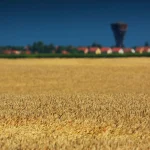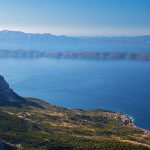An interesting conference on humans and their influence on the environment throughout history will take place in Zagreb June 28 – July 2
We are all witnesses of the tremendous influence human life has had on nature and the environment throughout history, but especially today. Together with the increase of the human population and technological and scientific advances, the intensity of human-induced environmental change has increased dramatically. The environment has to sustain multiple uses from different groups and different views on its utilisation have caused conflicts which are on the increase.
This is why 450 of the world’s most influential scientists and researchers of environmental history are gathering at a biennial conference in Zagreb, H-alter reports.
Faculty of Science, Department of Geography is hosting the conference, called “Natures in between – Environments in areas of contact among states, economic systems, cultures and religions” June 28 – July 2.
The biennial conference is organised by The European Society for Environmental History, which promotes the study of environmental history in all academic disciplines and encourages anyone who has an interest in the field to join and become involved.
Humans and their activities have been altering the Earth’s environment since the beginning of our evolution. Regarding historical changes of the environment, contact or conflict zones of different states, peoples, languages, religions and economies have always been of special interest to scientists. From Columbo discovering America, to great fires, diseases, and other natural disasters directly and indirectly caused by humans.
There are several different ways how these contacts between different spheres manifest themselves: a) peaceful co-existence with dynamic exchange of ideas, goods and technologies;
b) underlying conflict creating differences in spatial organisation, appropriation of culture as well as resource exploitation;
c) military conflict causing environmental and societal degradation and destruction. Both the suggested location of the conference as well as the excursion enables us to get to know different ways environments develop in a variety of contact areas.
Because of the unusual shape of Croatia’s territory and because of its historical development as a contact or conflict area of different worlds – Christianity and Islam, maritime and continental tradition to name a few – Croatia is a great place to study contact environments.
Influential scientists, such as Alfred W. Crosby, Verena Winiwarter, J. Donald Hughes, Dolly Jørgensen, and Williama Cronon will be discussing how these processes came about and in what way decisions made by humans influenced them. A special virtual collection of scientific papers on the topic, some of which will be discussed at the conference, can be found here.
Find out more at European Society for Environmental History website.









